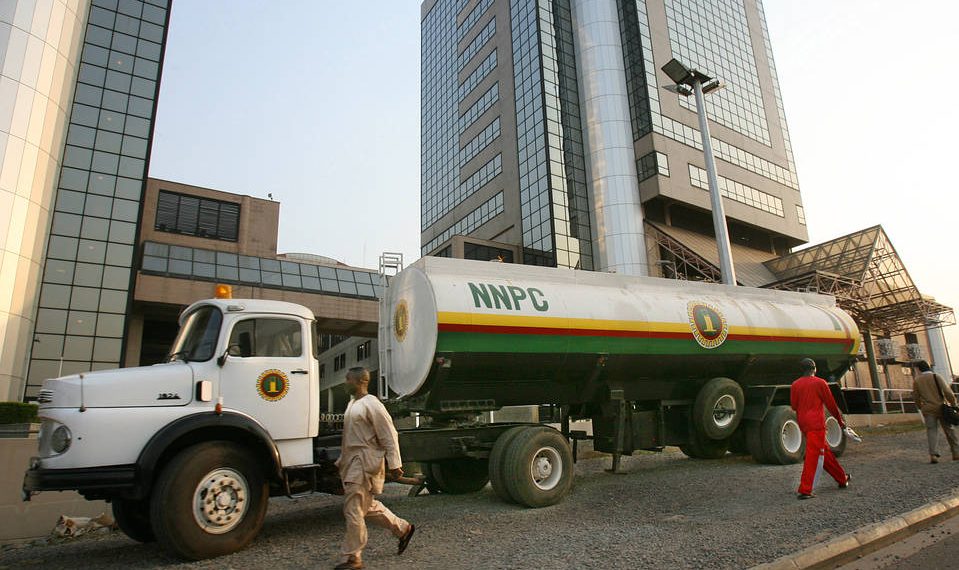The federal government has said the decision to introduce ‘deregulation’ of fuel supply in the downstream sector was part of fiscal measures to conserve declining oil revenues.
It was also to help achieve the country’s economic recovery post-COVID-19, an official said.
Following the pandemic, the international oil market faced the biggest challenge in recent history, with crude oil prices dropping from about $60 per barrel to below $12.
Nigeria’s expected revenues from crude oil exports shrank from $57 oil benchmark in the 2020 federal budget to less than $20 per barrel, as government scrambled to adopt alternative mechanism to fund the huge deficit.

But, a “Nigerian Economic Sustainability Plan” launched last week on how the government plans to achieve the speedy economic recovery in the post-COVID-19 era showed the deregulation policy was introduced to help conserve the money the government usually spends on fuel subsidy.
Under a deregulated petroleum products market, the payment for fuel subsidy by the government would give way to a regulated determination of the retail price of petrol sold by marketers.
The Minister of State for Petroleum Resources, Timipreye Sylva, told Bassey Udo of premium times in Abuja last week that the government expects to conserve as much as N1 trillion from the implementation of the deregulation policy.
Fiscal measures
The other fiscal measures to be implemented over the next one year to cushion the loss in oil revenues include the establishment of a sustainable framework to build and maintain the national strategic petroleum products stock across the country.
It is to be handled by the Federal Ministry of Finance, Budget and National Planning in collaboration with the Department of Petroleum Resources (DPR) and the Nigerian National Petroleum Corporation (NNPC).
The measures also include the need for the NNPC to remit 100 per cent of royalties and taxes paid by oil companies to the federation account.
Other measures include the continuous deductions from oil sector revenue by the NNPC to maximise payments to the federation account; NNPC’s payment of commercial value for all its crude oil lifting, and reduction in the average production costs of crude oil by at least 20 oer cent.
The plan also covers the N500 billion intervention fund to support the private sector and the micro, small and medium enterprises; extension of the deadlines and suspension of penalties for filing tax returns, providing targeted tariff reduction and trade finance facilities to support strategic imports to boost economic growth.
Also, the plan has provision for support to strategic industries affected by the pandemic, such as the aviation, hospitality and road transport and health sectors; funding to the pharmaceutical sector for the procurement of raw materials and equipment required to boost local drug production.
The plan will mobilise N86 billion intervention fund for health infrastructure to accelerate procurement of health material and equipment; develop incentive package for frontline healthcare workers; accelerate Infrastructure Completion, and expand the scope of the Road Infrastructure Tax Credit Scheme (RITCS).
During the period, additional revenue would be realised from the implementation of the VAT reforms in the Finance Act 2020, by maintaining the increase in VAT rate to 7.5 per cent in addition to the use of up to N2 trillion of pension funds for roads and housing development projects.
Other initiatives include developing business continuity plans for tax and customs administration to provide services to citizens, taxpayers, and importers; rationalise ineffective tax incentives and exemptions; increase remittances and recovery of unremitted revenues from government –owned enterprises; sign-off of guidelines of to capture revenues from cross-border business transactions.
Monetary policies
On monetary policy measures by the Central Bank of Nigeria, apart from the N1 trillion provided for loans to boost local manufacturing and production across critical sectors of the economy, the apex bank would take steps to unify the exchange rates to maximise naira returns to FAAC from foreign exchange inflows, while ensuring the exchange rate is managed in a sustainable manner.
The plan also expects the CBN to invoke partial risk guarantees for SMEs; grant additional one year moratorium on CBN intervention facilities; reduce interest rate on intervention facilities from 9 to 5 per cent; create N100 billion target credit facility for affected MSMEs, and grant regulatory forbearance to banks to restructure terms of facilities in affected sectors.
To provide a legal backing to the Economic Sustainability Plan, the government said the National Assembly would work with the Federal Ministry of Justice, Federal Ministry of Finance, Budget and National Planning for a Fiscal Stimulus Act.
Source: Premium Times